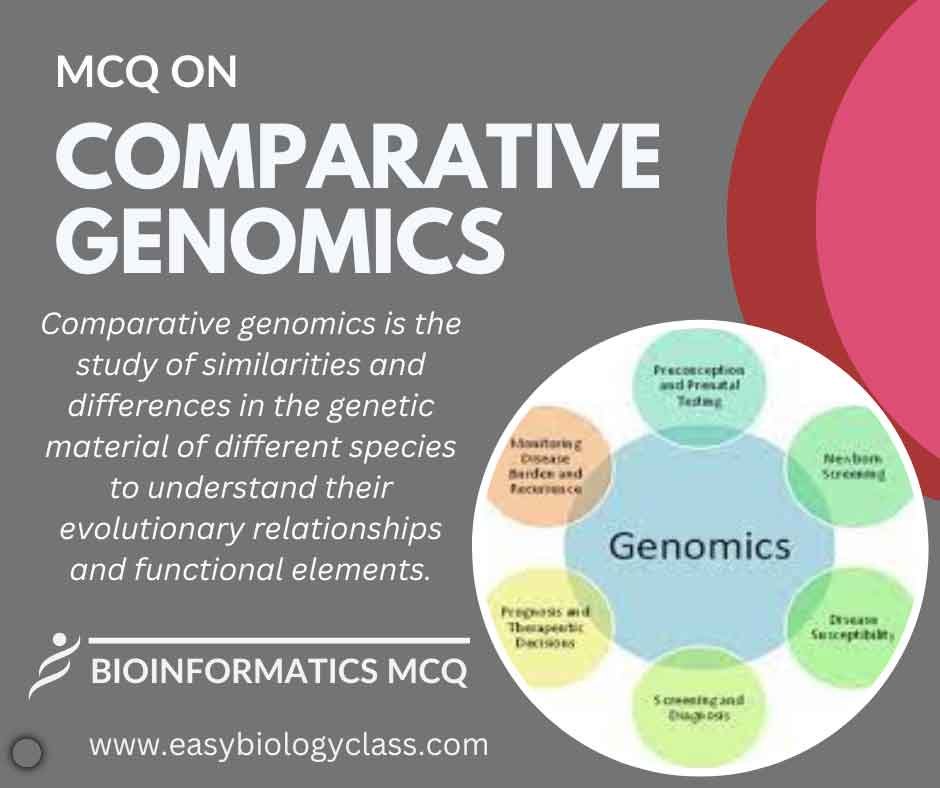Comparative genomics is the study of genetic similarities and differences among different species. It involves analyzing genome structures, gene content, and evolutionary relationships to understand the functional significance of genes and regulatory elements, aiding in diverse fields like evolutionary biology, medicine, and agriculture. This is an MCQ on Comparative Genomics. […]
Continue ReadingTag Archives: Genomics
MCQ on Functional Genomics
Functional genomics is a field that explores the roles and interactions of genes within a genome. It involves studying gene functions, expression patterns, and regulatory mechanisms, utilizing various techniques to understand how genes contribute to biological processes and phenotypes. This is an MCQ on Functional Genomics. Bioinformatics Notes | Bioinformatics […]
Continue ReadingMCQ on Structural Genomics
Structural genomics is a field that aims to determine the three-dimensional structures of all possible proteins encoded by a genome. It employs high-throughput methods like X-ray crystallography and NMR spectroscopy to analyze protein structures, aiding in understanding their functions and supporting drug discovery efforts. This is an MCQ on Structural […]
Continue ReadingMCQ on Transcriptomics
Transcriptomics is the study of the complete set of RNA transcripts (mRNA, non-coding RNAs) produced by an organism or within a specific cell population. It provides insights into gene expression patterns, alternative splicing, and RNA abundance, contributing to understanding cellular functions and regulatory mechanisms. This is an MCQ on Transcriptomics. […]
Continue ReadingMCQ on Proteomics – Concept and Applications
Proteomics is the comprehensive study of proteins within a biological system. It involves the identification, quantification, and functional analysis of proteins to understand their roles in cellular processes, signalling pathways, and disease mechanisms. Proteomics contributes to unravelling the complexity of biological systems at the protein level. This is an MCQ […]
Continue Reading




